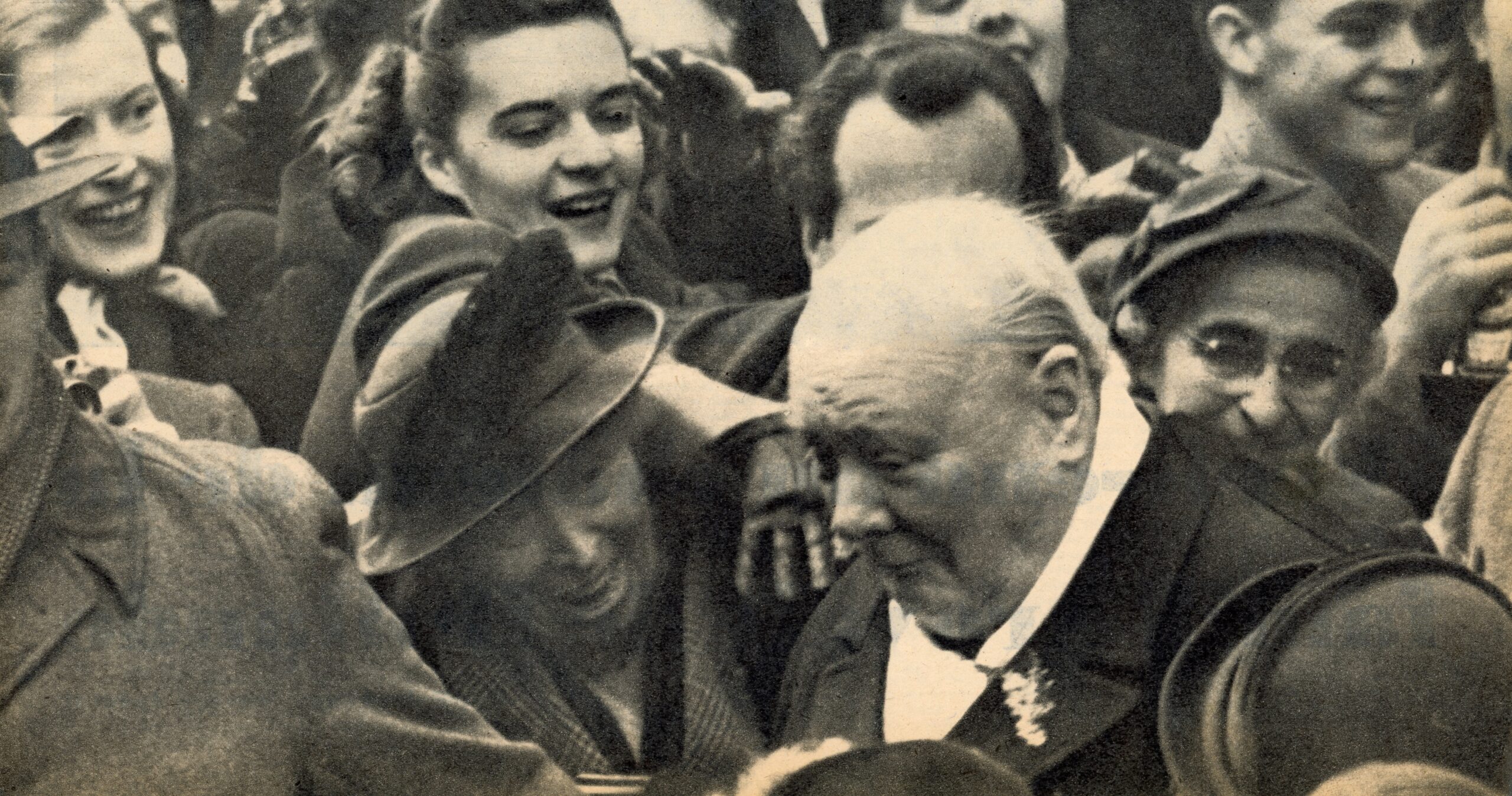Sixty years after his death, Winston Churchill is still making headlines. Newly released CIA documents reveal that American intelligence once sought to enlist him as a Cold War propagandist. The plan was to have the old bulldog beam words of wisdom or persuasion into the Soviet Union. A noble mission, perhaps, if it weren’t so absurd.
By the late 1950s, Churchill was frail, half-retired, and probably more interested in brandy than Bolsheviks. Still, the CIA wanted his voice. And who could blame them? It was the same voice that defied Hitler. And, in doing so, helped shape the modern world.
Now, decades later, that same voice is being re-examined. Or, in some corners of the internet, outright reviled. What began as idle speculation on fringe forums has seeped into the mainstream. Joe Rogan and Tucker Carlson have given airtime to self-styled “popular historians” spinning revisionist tales.
The argument, if one can even call it that, goes something like this: Churchill, not Der Führer, was to blame for the Second World War. His defiance, we’re told, forced Germany’s hand. Without his obstinacy, Europe might have been spared its suffering.
Such claims, like so many today, are click-hungry and conscience-free.
And yet, even those who admire him must admit that Churchill was no saint.
As Secretary of State, he unleashed the Black and Tans on Ireland — a ragtag force of ex-soldiers turned enforcers, sent to crush rebellion and restore “order.” What they restored was fear. They burned cottages to the ground. They shot farmers in their fields, and left bodies on village roads as warnings. Whole towns were torched in reprisal for a single ambush. They beat priests, looted shops, and called it peacekeeping.
My grandmother, now long gone, lived through their terror. She would tell me of nights when the sound of boots meant beatings. When doors were kicked in and men were dragged out into the cold. Windows shattered, women screamed, and some never saw their husbands again.
The Black and Tans left behind not peace, but proof that cruelty can march under any flag.
Yet to reduce Churchill to these moments alone would be as unfair as ignoring them.
He was a genius of strategy, rhetoric, and morale. He saw the Nazi menace long before most, and he resisted appeasement when even his own countrymen yearned for it. His speeches turned despair into defiance. His prose could make valor sound like verse. Without him, Hitler’s shadow might well have stretched across Europe.
To deny that is as foolish as claiming Hitler wasn’t so bad because he liked dogs.
This is the paradox of Churchill. His greatness and his flaws were, at times, inseparable — the mark of a visionary shaped by empire, and limited by it.
The internet, sadly, is allergic to such nuance. In this age of instant outrage, every figure must be saint or sinner, fascist or freedom-fighter. Context is a casualty of convenience.
Revisionists don’t seek to understand history. Instead, they seek to weaponize it. They call it “questioning the narrative,” though what they really mean is reshaping reality to fit their fantasy.
The irony is almost Churchillian.
Once, propaganda flowed from the CIA outward — calculated, funded, deliberate. Now, it rises from the grassroots upward, unfiltered, viral, and far more potent. Yesterday’s radio transmitters have become today’s podcasts. The same techniques of suggestion, repetition, and moral inversion are at play, only the sponsors have changed.
And perhaps, in a perverse way, the CIA finally got what it wanted: a world contaminated by “heretical thinking,” where no truth remains unchallenged for long.
But understanding Churchill requires more than contrarian flair. It demands we hold two opposing truths at once: that he defended civilization when others faltered, and that he also represented some of its more complicated instincts.
He embodied Britain at its best and its worst. He could summon bardic thunder in Parliament and bleak indifference in the colonies. That duality isn’t a contradiction. In truth, it’s human nature under history’s harshest light. It’s evidence of the impossible moral terrain of his age.
For Ireland, the reckoning remains personal.
Churchill saw our struggle not as liberation but as mutiny. To him, we were an inconvenience on the Empire’s western flank — little more than rebellious tenants refusing the landlord’s grace. He once described the Irish as “odd” because we refused to be English, a joke that barely disguised his disdain.
Yet even there, amid the violence and venom, his mastery of politics was undeniable. He could charm and coerce in equal measure. He could build alliances with men who despised him, and still die believing in the imperial dream that was already collapsing.
To lionize Churchill uncritically is to indulge nostalgia. To vilify him entirely is to imitate the fanaticism he loathed. The truth, as ever, lives in the messy middle. That grey frontier where heroism and hypocrisy often march side by side.
His legacy reminds us that greatness is not always synonymous with goodness.
Yet there’s something darker at play in this sudden fascination with recasting Churchill as a villain. It reflects a cultural hunger to invert every myth, to topple every statue, to prove that virtue never existed. It’s easier to find villains in history than to find honesty in ourselves.
But a society that abandons subtlety will end up rewriting everything. First its past, then its principles.
Churchill once said that history would be kind to him because he intended to write it. He did, and for a time, history obliged.
Now others are writing it anew. Not with scholarship, but with memes, merch, and manufactured outrage. The digital world prefers certainty to complexity, and the dead cannot log on to defend themselves.
Churchill was a great man but also a man. A flawed, driven, extraordinary human thrust into inhuman times. He was, above all, a product of his century — forged in its fire, shadowed by its sins, and indispensable to its survival.
—
*Bill Gates and the Redemption Racket*
*The Catholic Roots of America’s Horror Craze*
https://spectator.org/can-we-speak-of-churchill-without-distorting-the-truth/


